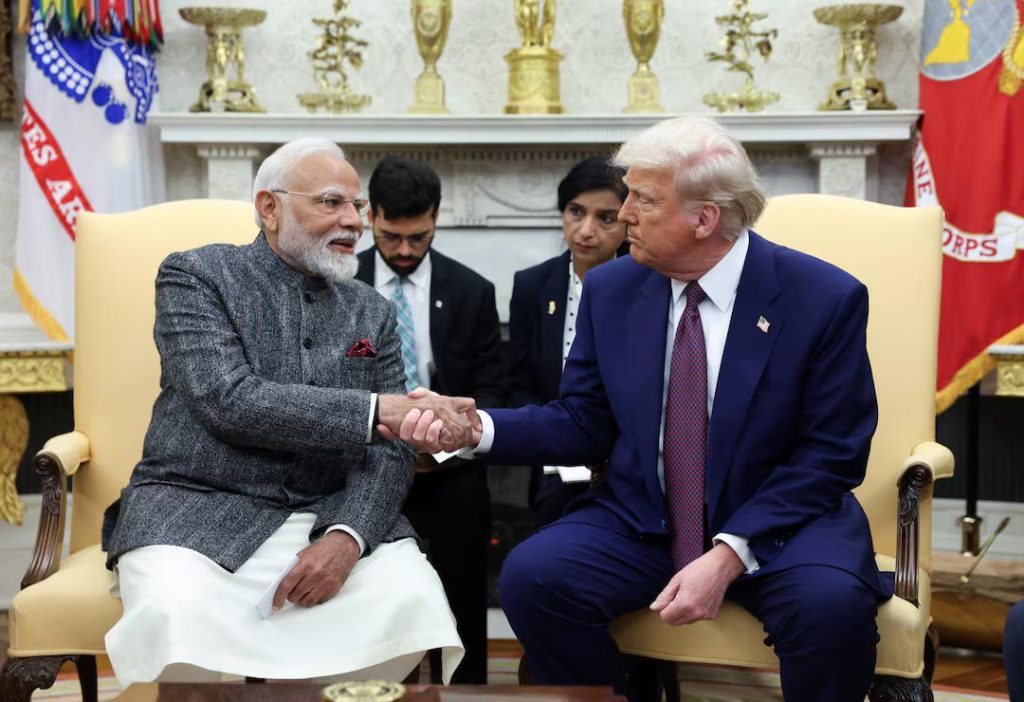
India, US Discuss Digital Trade, Customs & Others at BTA: Report
The India-US Bilateral Trade Agreement (BTA) has made significant progress in its negotiations, with discussions focused on digital trade, customs, and legal frameworks. According to a recent report, the talks aimed to ensure international trade agreements that protect human, animal, and plant health while guaranteeing products meet quality standards without unnecessary trade barriers.
The report highlights the key areas of discussion, including digital trade, customs, and legal frameworks, which are crucial components of the BTA. The negotiations aim to establish a robust and transparent trade relationship between the two nations, fostering growth and economic cooperation.
Digital Trade: A Key Area of Focus
The discussion on digital trade was a significant aspect of the BTA negotiations. Both countries recognized the importance of digital trade in their respective economies and the need to establish clear guidelines to facilitate smooth trade. The talks focused on issues such as e-commerce, data localization, and digital payments, which are critical to the growth of digital trade.
The Indian government has been actively working to promote digital trade, with initiatives such as the National Digital Communications Policy (NDCP) and the Digital Payments Policy. The NDCP aims to create a robust digital infrastructure, while the Digital Payments Policy seeks to increase the adoption of digital payments.
Customs: Simplifying Trade Processes
The discussion on customs was another critical aspect of the BTA negotiations. The talks focused on simplifying trade processes, reducing bureaucracy, and increasing transparency. Both countries recognized the need to streamline customs procedures to facilitate faster and more efficient trade.
The Indian government has been working to simplify customs procedures, with initiatives such as the National Single Window System (NSWS) and the Trade Infrastructure for Export Scheme (TIES). The NSWS aims to provide a single window clearance system for exporters, while TIES seeks to provide financial assistance to exporters to set up trade infrastructure.
Legal Framework: Ensuring Compliance
The discussion on legal frameworks was another key aspect of the BTA negotiations. Both countries recognized the need to establish a strong legal framework to ensure compliance with international trade agreements and standards. The talks focused on issues such as intellectual property rights, competition policy, and consumer protection.
The Indian government has been working to strengthen its legal framework, with initiatives such as the Intellectual Property Rights (IPR) regime and the Competition Act. The IPR regime aims to protect intellectual property rights, while the Competition Act seeks to promote competition and prevent anti-competitive practices.
International Trade Agreements: Protecting Health and Quality Standards
The BTA negotiations also focused on international trade agreements that protect human, animal, and plant health while ensuring products meet quality standards without unnecessary trade barriers. Both countries recognized the importance of these agreements in promoting trade and economic cooperation.
The Indian government has been actively working to promote international trade agreements, with initiatives such as the India-US Trade Policy Forum and the India-US Agriculture Dialogue. The Trade Policy Forum aims to promote trade and investment between the two nations, while the Agriculture Dialogue seeks to promote agricultural trade and cooperation.
Conclusion
The India-US Bilateral Trade Agreement has made significant progress in its negotiations, with discussions focused on digital trade, customs, and legal frameworks. Both countries have agreed to continue negotiations to achieve a conclusion on the BTA.
The report highlights the key areas of discussion, including digital trade, customs, and legal frameworks, which are crucial components of the BTA. The negotiations aim to establish a robust and transparent trade relationship between the two nations, fostering growth and economic cooperation.
The Indian government has been actively working to promote digital trade, simplify customs procedures, strengthen its legal framework, and promote international trade agreements. The success of the BTA will depend on the ability of both countries to work together and find common ground on these critical issues.
Source: https://x.com/cnbctv18live/status/1932452243166343187






